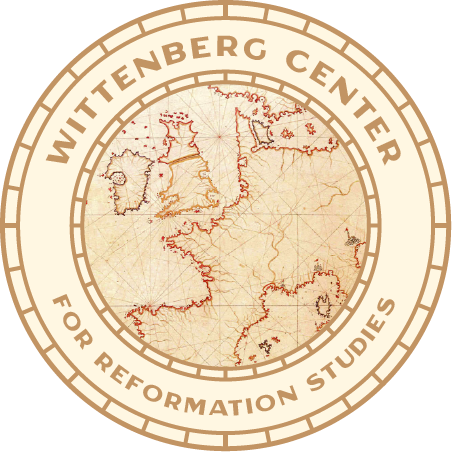After three weeks of course work in Wittenberg, the Fellows of the Wittenberg Summer Course 2024 left for England. Prof. Dorothea Wendebourg (Humboldt University, Berlin) and Dr. Caecilia-Désirée Hein (Reformation Research Library, Wittenberg) joined them as guests. On August 4, the group traveled by bus to Hoek van Holland, where they checked in for the overnight ferry to England. On August 5, the group visited Durham. At St. John’s College they met Dr. Alan Bartlett (Diocese of Durham), who worked with the Student Fellows in reading the prefaces to the Book of Common Prayer and analyzing Thomas Cranmer’s ordination liturgy.


On August 6 the group crossed Yorkshire: Fountains Abbey is about the glories of medieval monasticism and the dissolution of the monasteries under Henry VIII, and York Cathedral is the focal point of the Northern Ecclesiastical Province, whose history in the sixteenth century was markedly different from that of the southern ecclesiastical province.
The group spent August 7 in Cambridge. A tour of the city took them to St. Edward’s and St. Mary’s Churches, which were important to the Reformation, and to King’s College Chapel. On the left is St. Edward’s Church in Cambridge with its sixteenth century wooden pulpit. It was here that Robert Barnes preached the sermon on the fourth day of Advent in 1525, which caused so much excitement that he had to flee to the continent and ended up in Wittenberg. John Foxe gives the following information about this sermon, which some consider the beginning of the English Reformation:
„The first sermon that euer he preached of this truth, was the Sonday before Christmas day, at S. Edwardes church longing to Trinitie hall in Cambridge, by the Pease market: whose theame was the epistle of the same sonday, Gaudete in domino, &c. and so postilled the whole epistle, folowyng the scripture and Luthers postill, and for that sermon he was immediatly accused of heresie by two fellowes of the kings hall.“
The librarians of Jesus College and Trinity College presented resources on the history of the Reformation and provided information on how researchers can use them. For the first guest lecture of the day, Prof. Richard Rex invited to Queens’ College to present his research on the reactions to the German Reformation in England in the 1520s. The second guest lecture took place at Robinson College, where Prof. David Gehring, who teaches at the University of Nottingham, presented his newly published biography of the Elizabethan politician Robert Beale and discussed the genre of academic biography with the Student Fellows.
On August 8, the group visited the sites of Cranmer’s final weeks and days in Oxford. The guest lecture for the day was given by Prof. Peter Marshall of the University of Warwick, who presented his interpretation of Thomas More’s life and work.
August 9 began with a lecture by Research Fellow Prof. Torrance Kirby (McGill University) in London’s Temple Church on Richard Hooker’s work in that church and the conflicts with the Puritans that ultimately led to the writing of his ‘Laws of Ecclesiastical Polity’.


This was followed by a guest lecture by Dr. David Hoyle in the Jerusalem Chamber of Westminster Abbey. The Dean of Westminster spoke about his research into the changes in the English church in the 17th century and the role of Westminster Abbey in these processes. Dr. Susan Jenkins, Curator of the Abbey, then led the group on a tour of the Abbey, opening many doors that are normally closed. The afternoon began with a guest lecture by Prof. Paul Avis on Richard Hooker as a theologian, discussing in particular his significance for the Anglican Church. The day ended with a visit to the British Library.
On August 10, the group met in the morning for the final guest lecture, again given by Prof. Paul Avis, which addressed a recurring theme throughout the course from a systematic theological perspective: the relevance of the Bible for the church. The group then traveled to the final stop of the excursion: Canterbury. There they received an introduction to Thomas Cranmer’s work as archbishop and attended Evensong together in the cathedral.




